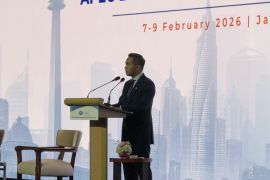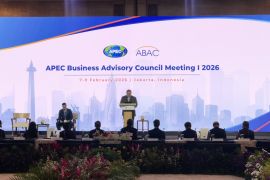This was noted in a written statement issued by the APEC Life Science Innovation Forum and received here on Monday.
"Vaccination is one of the world’s most important and cost-effective public health measures," according to Michelle McConnell, the Planning Group Chair of the APEC Life Sciences Innovation Forum -- one of the groups that spearheaded the strategy.
"While the priority now is to vaccinate as many people as possible against COVID-19, we still need to be able to provide robust immunization programs against other vaccine-preventable diseases, so that COVID’s impact is not compounded by additional outbreaks," McConnell stressed.
However, the health and economic crises has disrupted global routine immunization programs. According to the World Health Organization (WHO), some 23 million children missed out on basic childhood vaccines.
Another study indicated that 95 percent of the economies in the Asia-Pacific region reported disruption in routine vaccination, with infancy and school-entry age vaccinations being the most impacted.
Related news: Jacinda Ardern to chair APEC Informal Leaders' Retreat on COVID-19
A vaccine task force, comprising policymakers and private sector representatives, was formed last year to work on vaccine-related issues and to identify the best approach to immunization, so that member economies can be better equipped to prevent infection and disease for all individuals.
The APEC Action Plan on Vaccination across the Life-Course details key pillars for a successful immunization program and policy targets.
A collective goal has been set for all 21 APEC member economies to implement resilient and sustainable life-course immunization programs to protect the health and well-being of all populations by 2030. This will enable economies to achieve the WHO Immunization Agenda 2030.
"A life-course approach to vaccination requires that immunization schedules and access to vaccinations respond to an individual’s stage in life, their lifestyle and specific vulnerabilities or risks to infectious disease that they may face," McConnell pointed out.
McConnell further highlighted that adopting a life-course approach will improve equity in health outcomes, lower health burdens on social systems, reduce treatment costs, and ease economic burden, such as illness-induced wage and productivity loss.
Related news: APEC expedites regulatory convergence on life-saving medical products
The document puts forth a series of recommendations that will help move the region forward toward resilient and sustainable immunization programs.
"It has never been more apparent that vaccination is critical to the strength of our economies," Executive Director of the APEC Secretariat Rebecca Sta Maria affirmed.
"APEC has a unique role to play in supporting the region’s effective trade, regulation, and investment in vaccines to protect our population, both in the midst of COVID-19 and far beyond," she noted.
The APEC Life Science Innovation Forum, in collaboration with the APEC Health Working Group, will also host the virtual 11th High-Level Meeting on Health and the Economy on Aug 24.
The Health Working Group also contributed to the development of this action plan.
Related news: Customs at forefront in enabling COVID-19 vaccination roll-out: APEC
Reporter: Yuni Arisandy Sinaga
Editor: Rahmad Nasution
Copyright © ANTARA 2021












